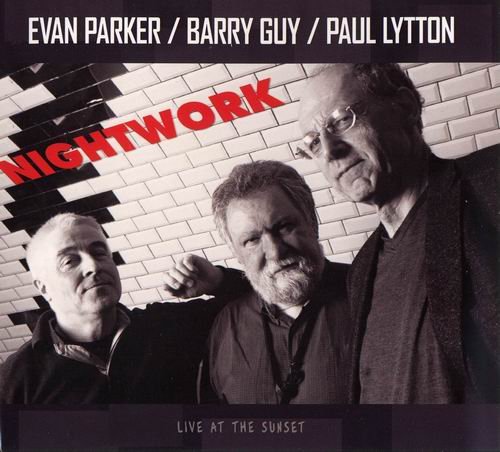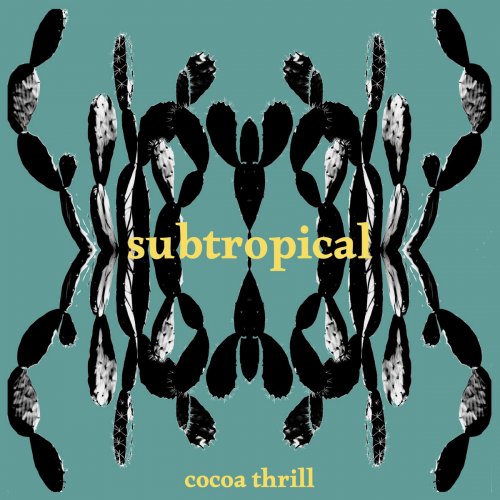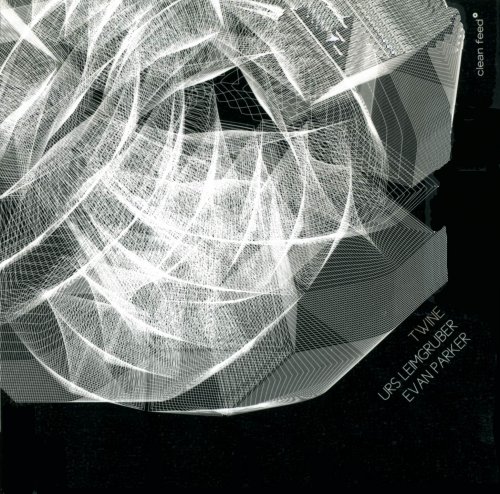Little Richard - Playlist: The Best Of the Reprise Years (2016)
- 30 Oct, 17:36
- change text size:
Facebook
Twitter
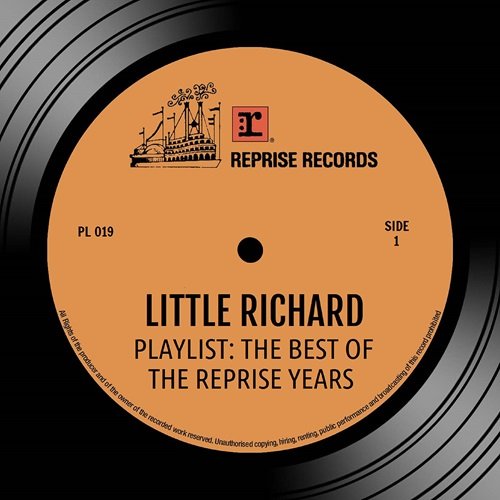
Artist: Little Richard
Title: Playlist: The Best Of the Reprise Years
Year Of Release: 2016
Label: Reprise Records, Warner Records
Genre: R&B, Rock'n'Roll
Quality: Mp3 320 / Flac (tracks)
Total Time: 01:17:10
Total Size: 187/505 Mb
WebSite: Album Preview
Tracklist:Title: Playlist: The Best Of the Reprise Years
Year Of Release: 2016
Label: Reprise Records, Warner Records
Genre: R&B, Rock'n'Roll
Quality: Mp3 320 / Flac (tracks)
Total Time: 01:17:10
Total Size: 187/505 Mb
WebSite: Album Preview
01. Born on the Bayou 4:25
02. Green Power 3:59
03. Burning Up with Love 3:20
04. Money Is 4:30
05. Dancing in the Street 5:30
06. It Ain't What You Do, It's the Way How You Do It 2:46
07. California (I'm Comin') 3:17
08. Nuki Suki 5:32
09. Southern Child 2:57
10. Shake a Hand (If You Can) 2:41
11. Greenwood, Mississippi 3:33
12. Prophet of Peace 3:19
13. I Git a Little Lonely 1:44
14. Freedom Blues 3:01
15. I'm So Lonesome I Could Cry 2:38
16. Spreadin' Natta What's the Matter 4:33
17. If I Pick Her Too Hard (She Comes out of Tune) 3:51
18. Second Line 4:51
19. Over Yonder 3:55
20. Joy to the World 6:49
Of the great artists from the first era of rock & roll, few were as powerful and exciting as Little Richard, and no one bested his magnetism and flamboyance. Blessed with a singularly forceful voice (his piercing "Whooooo!" is still one of the most eloquent screams in American music) and a rollicking piano style, Little Richard fused gospel, rhythm & blues, and boogie woogie into a sound that was purely electric, and he startled audiences with his flashy clothes, outrageous persona, and willingness to present a sexually ambiguous image at a time when such things were all but unknown in popular culture. And though Little Richard had a relatively short tenure as a major hitmaker -- nearly all his hits appeared in 1956 and 1957 -- he maintained a reputation as an unrelenting stage performer, capable of blowing nearly any act off the stage, and his influence would be felt decades after he stopped charting singles on a regular basis. The Beatles, the Rolling Stones, Sam Cooke, Otis Redding, David Bowie, and Bob Dylan all cited Richard as a key inspiration, and he never entirely lost his audience despite walking away from secular music not once, but twice, convinced that rock & roll was an offense against his Christian faith. Richard's classic 1956-1957 sides for Specialty Records -- his greatest work -- are best heard on the 1991 compilation The Georgia Peach, and 1962's King of the Gospel Singers is among the very best of his underrated gospel recordings. While many of his '60s recordings were disappointing, 1964's Little Richard Is Back (And There's a Whole Lotta Shakin' Goin' On!) and 1967's The Explosive Little Richard showed that his voice, his passion, and his charisma were still in fine condition. 1972's The Second Coming was the strongest of his comeback albums of that decade, and 1986's Lifetime Friend was a strong late-period LP that featured his last significant hit, "Great Gosh A'Mighty (It's a Matter of Time)." His legacy as a trailblazing figure in Black music and queer culture was heralded in the 2023 documentary Little Richard: I Am Everything.
Little Richard was born Richard Wayne Penniman in Macon, Georgia on December 5, 1932, the third of twelve children. His mother was deeply religious and regularly attended a Baptist church where his father was a deacon. Richard's father was also a brick mason and a bootlegger who ran a honky tonk on the side called the Tip In Inn. Richard was born with one leg slightly shorter than the other, which gave him a walk some regarded as effeminate, and he grew up in a community with a thriving underground culture of gay life and cross-dressing that had a dramatic impact on him. However, Richard, like his parents, was a confirmed church-goer, and his earliest musical inclinations were in gospel, singing in church and drawing influence from artists such as Sister Rosetta Tharpe, Mahalia Jackson, and Brother Joe May. By the time Richard was in junior high, he had learned to play piano and saxophone, and developed a reputation in his church for his strong, high-register vocals. In high school, Richard landed a part-time job with a local concert promoter, selling refreshments at the Macon City Auditorium, where he saw some of his gospel favorites as well as R&B stars like Cab Calloway and Lucky Millinder. Richard was 14 when Sister Rosetta Tharpe played there; she heard Richard singing early in the day, and invited him to sing a few songs on-stage before she began her set.
Tharpe encouraged Richard to pursue a career in music, and in 1949 he joined the traveling show of an eccentric performer named Doctor Nubillo, where he picked up Nubillo's enthusiasm for over-the-top performances. Later the same year, Richard hit the road with Dr. Hudson's Medicine Show, which found him performing the Louis Jordan hit "Caldonia" (the first time he sang R&B, which his folks believed was sinful), and appeared in drag under the stage name Princess LaVonne. In 1950, Richard landed a gig as a singer with Buster Brown & His Orchestra, where the bandleader gave him the nickname Little Richard, based on his lanky frame, and the name stuck. Richard toured on the Black vaudeville circuit, where he was befriended by Billy Wright, an R&B star who coached Richard in refining his look with pancake makeup, a pencil-thin mustache, and stylish stage wear. Wright also introduced Richard to Zenas Sears, a disc jockey with music business connections, leading to Richard signing a record deal with RCA Victor. Richard released four singles with RCA, in 1951 and 1952, but they lacked his trademark energy and failed to find an audience. Thus was the case when he signed with Peacock Records, issuing two singles (in June 1953 and March 1954) that quickly came and went, despite Johnny Otis' presence as bandleader on one of the sessions.
After his second Peacock single flopped, Richard returned to Macon, where he took a job washing dishes at a bus station diner. There he met a fellow aspiring musician and eccentric known as Eskew Reeder, Jr. or Esquerita, depending on the circumstances. Esquerita taught Richard his strongly percussive piano style, which had a muscular power and drive that marked the difference between R&B and rock & roll. Esquerita helped Richard focus the energy of his performing style, and when Lloyd Price saw Little Richard perform with his new band the Upsetters, Price suggested he contact his label at the time, Specialty Records. Specialty sent Richard to New Orleans to record with producer Robert "Bumps" Blackwell and engineer Cosimo Matassa, and though his first session initially didn't produce anything of value, during a break he played a raunchy song he'd written called "Tutti Frutti" that reflected the hard-rocking sound he learned from Esquerita. After cleaning up the lyrics (which were initially about gay sex), Specialty released "Tutti Frutti" in October 1955, and it became an immediate smash, rising to number two on the R&B singles charts and number 29 on the pop survey, despite the fact many stations felt the record was too raucous for the airwaves, preferring to spin a toned-down cover by Pat Boone.
"Tutti Frutti" made Little Richard an overnight star, and between 1956 and 1957, he delivered a string of singles that were R&B and pop hits and cemented his reputation as the wildest man in rock & roll, including "Long Tall Sally," "Rip It Up," "The Girl Can't Help It," "Lucille," and "Jenny Jenny." Richard would spend decades fighting the penurious recording and publishing contracts he signed with Specialty, but his gig fees made him a wealthy man, and he landed a prime spot in Frank Tashlin's rock & roll comedy film The Girl Can't Help It. Relocating to a mansion in Los Angeles and buying a fleet of brightly colored Cadillacs, Richard was living the good life, but that came to a halt in October 1957; while traveling to Australia, Richard experienced the first of several apocalyptic visions that convinced him he needed to turn away from the sinful influences of rock & roll. Within a matter of months, he turned his back on secular music, enrolled in college to study theology, got married, and spearheaded an evangelistic crusade. In 1960, Richard cut a pair of gospel albums for End Records, Pray Along with Little Richard, Vol. 1 and Vol. 2, and in 1962, Mercury released The King of the Gospel Singers, produced by Quincy Jones. In the fall of 1963, Richard was booked for a tour of the United Kingdom, where his records continued to sell, with Sam Cooke as his co-headliner. On the first night, Richard was upset when fans, expecting to hear him sing his rock & roll hits, booed his gospel set, and he was even more unhappy when Cooke received a major ovation. Richard soon decided to give his fans what they wanted, and for the rest of the tour, he played a selection of his classics that bowled the audience over and stole the show from Cooke. The response was strong enough that Richard quickly booked another British tour with the Beatles -- who were on the cusp of becoming global stars -- opening the shows.
With Richard once again committed to rock & roll, he signed with Vee-Jay Records, and cut a comeback album, 1964's Little Richard Is Back (And There's a Whole Lotta Shakin' Goin' On!), which included the R&B hit "I Don't Know What You've Got But It's Got Me," as well as Greatest Hits, featuring new recordings of his hits for Specialty. A brief relationship with the Columbia-affiliated Okeh label resulted in 1967's The Explosive Little Richard, produced by Don Covay, which was cut while Jimi Hendrix was a member of Richard's road band. For the most part, these recordings didn't generate many sales, but his frequent touring in North America, the United Kingdom, and Europe helped him enlarge his audience, and as first-era rock & roll came back into vogue in the late '60s, Richard's triumphant appearances at "Rock 'n' Roll Revival" concerts alongside the likes of Chuck Berry, Bo Diddley, and Fats Domino found him filling arenas and topping festival bills once again, as well as headlining showrooms in Las Vegas.
Having reaffirmed his status as one of rock & roll's most dynamic artists, Richard signed with Reprise Records, and 1970's The Rill Thing gave him his first hit single in years, "Freedom Blues." However, two follow-ups -- 1971's King of Rock and Roll and 1972's The Second Coming -- didn't find an audience, and Reprise opted not to release a fourth completed album, Southern Child, which finally emerged in 2005 on the box set King of Rock and Roll: The Complete Reprise Recordings. The 1974 album Right Now was cut in a single night with Bumps Blackwell producing, and received so little promotion most fans hardly noticed it. In 1976, he once again re-recorded his '50s classics for K-Tel Records on an LP called Little Richard Live. While Richard continued to tour regularly, he had developed a severe drinking problem along with regularly abusing cocaine, heroin, and PCP. In 1977, weary from touring and chemical dependence, Little Richard once again renounced rock & roll to embrace evangelism, and abandoned secular music in favor of preaching. He cut a gospel album for the Word label, 1979's God's Beautiful City, but largely vanished from the mainstream entertainment business.
After several years out of the public eye, Richard made a major splash in the media in 1985 with the publication of The Life and Times of Little Richard, The Quasar of Rock, written by Charles White in cooperation with Richard. The book was a wild tale that lived up to any and all legends of his on-stage flamboyance and backstage decadence (as well as testifying to his latter-day faith), and it sold well and put him back in the spotlight. Richard's appearances on the talk show circuit promoting the book led to director Paul Mazursky casting him as a flamboyant record producer in the 1986 comedy Down and Out in Beverly Hills, launching a successful second career with the rocker popping up in movies and television projects well into the 2000s.
Richard cut a gospel-accented rocker, "Great Gosh A'Mighty," with Billy Preston for the soundtrack to Down and Out in Beverly Hills, and its success prompted him to record an album for Warner Bros., 1986's Lifetime Friend. In 1991, Richard contributed a recording of "Itsy Bitsy Spider" to the album For Our Children, a benefit release from Disney intended to raise funds for pediatric AIDS charities. Richard's track earned enough praise that Disney brought him in to cut a full album for children, 1992's Shake It All About, that went platinum and became one of the biggest-selling albums of his career. Richard's future recording efforts were limited to occasional guest appearances on multi-artist projects, but he continued to play live. Health problems began to impact the frequency and intensity of his concerts as he struggled with sciatic nerve pain and underwent a hip replacement. In a 2013 interview with Rolling Stone, Richard announced he was retiring, and despite occasional public appearances, he became reclusive and rarely spoke to the media, though he did grant a brief interview in 2017 after the death of Chuck Berry to honor the man he called " one of my best friends in music." That same year, his debut album, 1957's Here's Little Richard, was given a long-overdue reissue, accompanied by a bonus disc of demos and alternate takes. On May 9, 2020, Little Richard died in Tullahoma, Tennessee after struggling with bone cancer; he was 87 years old. In 2023, filmmaker Lisa Cortés released the documentary film Little Richard: I Am Everything, which celebrated Richard's life and career as a Black rock & roll icon and an early hero of queer culture. The Varese Sarabande label issued a soundtrack album, which featured eleven tracks from Richard's catalog, as well as new recordings from Valerie June, Cory Henry, and Tamar-Kali Brown. ~ Mark Deming
Little Richard was born Richard Wayne Penniman in Macon, Georgia on December 5, 1932, the third of twelve children. His mother was deeply religious and regularly attended a Baptist church where his father was a deacon. Richard's father was also a brick mason and a bootlegger who ran a honky tonk on the side called the Tip In Inn. Richard was born with one leg slightly shorter than the other, which gave him a walk some regarded as effeminate, and he grew up in a community with a thriving underground culture of gay life and cross-dressing that had a dramatic impact on him. However, Richard, like his parents, was a confirmed church-goer, and his earliest musical inclinations were in gospel, singing in church and drawing influence from artists such as Sister Rosetta Tharpe, Mahalia Jackson, and Brother Joe May. By the time Richard was in junior high, he had learned to play piano and saxophone, and developed a reputation in his church for his strong, high-register vocals. In high school, Richard landed a part-time job with a local concert promoter, selling refreshments at the Macon City Auditorium, where he saw some of his gospel favorites as well as R&B stars like Cab Calloway and Lucky Millinder. Richard was 14 when Sister Rosetta Tharpe played there; she heard Richard singing early in the day, and invited him to sing a few songs on-stage before she began her set.
Tharpe encouraged Richard to pursue a career in music, and in 1949 he joined the traveling show of an eccentric performer named Doctor Nubillo, where he picked up Nubillo's enthusiasm for over-the-top performances. Later the same year, Richard hit the road with Dr. Hudson's Medicine Show, which found him performing the Louis Jordan hit "Caldonia" (the first time he sang R&B, which his folks believed was sinful), and appeared in drag under the stage name Princess LaVonne. In 1950, Richard landed a gig as a singer with Buster Brown & His Orchestra, where the bandleader gave him the nickname Little Richard, based on his lanky frame, and the name stuck. Richard toured on the Black vaudeville circuit, where he was befriended by Billy Wright, an R&B star who coached Richard in refining his look with pancake makeup, a pencil-thin mustache, and stylish stage wear. Wright also introduced Richard to Zenas Sears, a disc jockey with music business connections, leading to Richard signing a record deal with RCA Victor. Richard released four singles with RCA, in 1951 and 1952, but they lacked his trademark energy and failed to find an audience. Thus was the case when he signed with Peacock Records, issuing two singles (in June 1953 and March 1954) that quickly came and went, despite Johnny Otis' presence as bandleader on one of the sessions.
After his second Peacock single flopped, Richard returned to Macon, where he took a job washing dishes at a bus station diner. There he met a fellow aspiring musician and eccentric known as Eskew Reeder, Jr. or Esquerita, depending on the circumstances. Esquerita taught Richard his strongly percussive piano style, which had a muscular power and drive that marked the difference between R&B and rock & roll. Esquerita helped Richard focus the energy of his performing style, and when Lloyd Price saw Little Richard perform with his new band the Upsetters, Price suggested he contact his label at the time, Specialty Records. Specialty sent Richard to New Orleans to record with producer Robert "Bumps" Blackwell and engineer Cosimo Matassa, and though his first session initially didn't produce anything of value, during a break he played a raunchy song he'd written called "Tutti Frutti" that reflected the hard-rocking sound he learned from Esquerita. After cleaning up the lyrics (which were initially about gay sex), Specialty released "Tutti Frutti" in October 1955, and it became an immediate smash, rising to number two on the R&B singles charts and number 29 on the pop survey, despite the fact many stations felt the record was too raucous for the airwaves, preferring to spin a toned-down cover by Pat Boone.
"Tutti Frutti" made Little Richard an overnight star, and between 1956 and 1957, he delivered a string of singles that were R&B and pop hits and cemented his reputation as the wildest man in rock & roll, including "Long Tall Sally," "Rip It Up," "The Girl Can't Help It," "Lucille," and "Jenny Jenny." Richard would spend decades fighting the penurious recording and publishing contracts he signed with Specialty, but his gig fees made him a wealthy man, and he landed a prime spot in Frank Tashlin's rock & roll comedy film The Girl Can't Help It. Relocating to a mansion in Los Angeles and buying a fleet of brightly colored Cadillacs, Richard was living the good life, but that came to a halt in October 1957; while traveling to Australia, Richard experienced the first of several apocalyptic visions that convinced him he needed to turn away from the sinful influences of rock & roll. Within a matter of months, he turned his back on secular music, enrolled in college to study theology, got married, and spearheaded an evangelistic crusade. In 1960, Richard cut a pair of gospel albums for End Records, Pray Along with Little Richard, Vol. 1 and Vol. 2, and in 1962, Mercury released The King of the Gospel Singers, produced by Quincy Jones. In the fall of 1963, Richard was booked for a tour of the United Kingdom, where his records continued to sell, with Sam Cooke as his co-headliner. On the first night, Richard was upset when fans, expecting to hear him sing his rock & roll hits, booed his gospel set, and he was even more unhappy when Cooke received a major ovation. Richard soon decided to give his fans what they wanted, and for the rest of the tour, he played a selection of his classics that bowled the audience over and stole the show from Cooke. The response was strong enough that Richard quickly booked another British tour with the Beatles -- who were on the cusp of becoming global stars -- opening the shows.
With Richard once again committed to rock & roll, he signed with Vee-Jay Records, and cut a comeback album, 1964's Little Richard Is Back (And There's a Whole Lotta Shakin' Goin' On!), which included the R&B hit "I Don't Know What You've Got But It's Got Me," as well as Greatest Hits, featuring new recordings of his hits for Specialty. A brief relationship with the Columbia-affiliated Okeh label resulted in 1967's The Explosive Little Richard, produced by Don Covay, which was cut while Jimi Hendrix was a member of Richard's road band. For the most part, these recordings didn't generate many sales, but his frequent touring in North America, the United Kingdom, and Europe helped him enlarge his audience, and as first-era rock & roll came back into vogue in the late '60s, Richard's triumphant appearances at "Rock 'n' Roll Revival" concerts alongside the likes of Chuck Berry, Bo Diddley, and Fats Domino found him filling arenas and topping festival bills once again, as well as headlining showrooms in Las Vegas.
Having reaffirmed his status as one of rock & roll's most dynamic artists, Richard signed with Reprise Records, and 1970's The Rill Thing gave him his first hit single in years, "Freedom Blues." However, two follow-ups -- 1971's King of Rock and Roll and 1972's The Second Coming -- didn't find an audience, and Reprise opted not to release a fourth completed album, Southern Child, which finally emerged in 2005 on the box set King of Rock and Roll: The Complete Reprise Recordings. The 1974 album Right Now was cut in a single night with Bumps Blackwell producing, and received so little promotion most fans hardly noticed it. In 1976, he once again re-recorded his '50s classics for K-Tel Records on an LP called Little Richard Live. While Richard continued to tour regularly, he had developed a severe drinking problem along with regularly abusing cocaine, heroin, and PCP. In 1977, weary from touring and chemical dependence, Little Richard once again renounced rock & roll to embrace evangelism, and abandoned secular music in favor of preaching. He cut a gospel album for the Word label, 1979's God's Beautiful City, but largely vanished from the mainstream entertainment business.
After several years out of the public eye, Richard made a major splash in the media in 1985 with the publication of The Life and Times of Little Richard, The Quasar of Rock, written by Charles White in cooperation with Richard. The book was a wild tale that lived up to any and all legends of his on-stage flamboyance and backstage decadence (as well as testifying to his latter-day faith), and it sold well and put him back in the spotlight. Richard's appearances on the talk show circuit promoting the book led to director Paul Mazursky casting him as a flamboyant record producer in the 1986 comedy Down and Out in Beverly Hills, launching a successful second career with the rocker popping up in movies and television projects well into the 2000s.
Richard cut a gospel-accented rocker, "Great Gosh A'Mighty," with Billy Preston for the soundtrack to Down and Out in Beverly Hills, and its success prompted him to record an album for Warner Bros., 1986's Lifetime Friend. In 1991, Richard contributed a recording of "Itsy Bitsy Spider" to the album For Our Children, a benefit release from Disney intended to raise funds for pediatric AIDS charities. Richard's track earned enough praise that Disney brought him in to cut a full album for children, 1992's Shake It All About, that went platinum and became one of the biggest-selling albums of his career. Richard's future recording efforts were limited to occasional guest appearances on multi-artist projects, but he continued to play live. Health problems began to impact the frequency and intensity of his concerts as he struggled with sciatic nerve pain and underwent a hip replacement. In a 2013 interview with Rolling Stone, Richard announced he was retiring, and despite occasional public appearances, he became reclusive and rarely spoke to the media, though he did grant a brief interview in 2017 after the death of Chuck Berry to honor the man he called " one of my best friends in music." That same year, his debut album, 1957's Here's Little Richard, was given a long-overdue reissue, accompanied by a bonus disc of demos and alternate takes. On May 9, 2020, Little Richard died in Tullahoma, Tennessee after struggling with bone cancer; he was 87 years old. In 2023, filmmaker Lisa Cortés released the documentary film Little Richard: I Am Everything, which celebrated Richard's life and career as a Black rock & roll icon and an early hero of queer culture. The Varese Sarabande label issued a soundtrack album, which featured eleven tracks from Richard's catalog, as well as new recordings from Valerie June, Cory Henry, and Tamar-Kali Brown. ~ Mark Deming

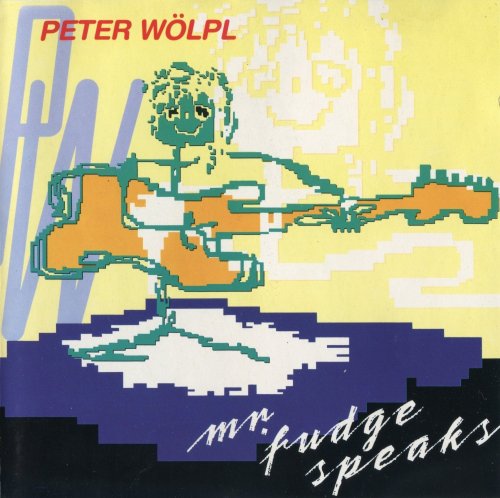
![Salena Jones - Salena Sings Jobim With The Jobims (1994) [Hi-Res] Salena Jones - Salena Sings Jobim With The Jobims (1994) [Hi-Res]](https://www.dibpic.com/uploads/posts/2025-09/1759219708_tp1eya1a0k2ea_600.jpg)
![Leonor Watling & Leo Sidran - LEO & LEO (2025) [Hi-Res] Leonor Watling & Leo Sidran - LEO & LEO (2025) [Hi-Res]](https://www.dibpic.com/uploads/posts/2025-09/1759248500_folder.jpg)
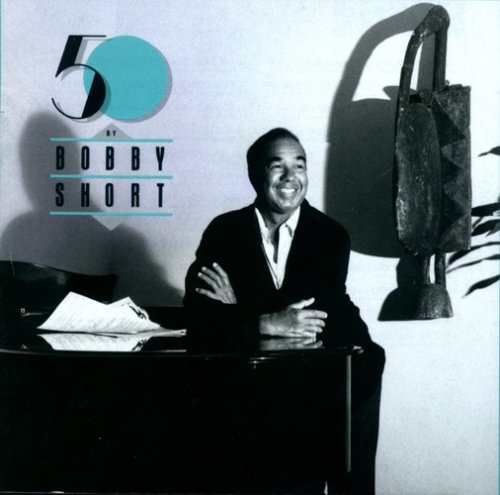
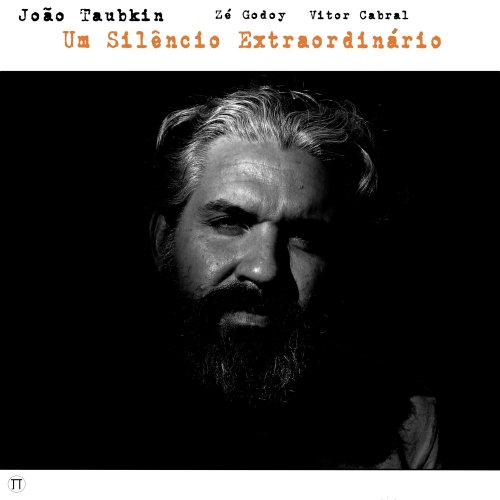
![Alberto Baldan Bembo - Io E Mara (2025) [Hi-Res] Alberto Baldan Bembo - Io E Mara (2025) [Hi-Res]](https://www.dibpic.com/uploads/posts/2025-09/1759238250_a4113976339_10.jpg)
